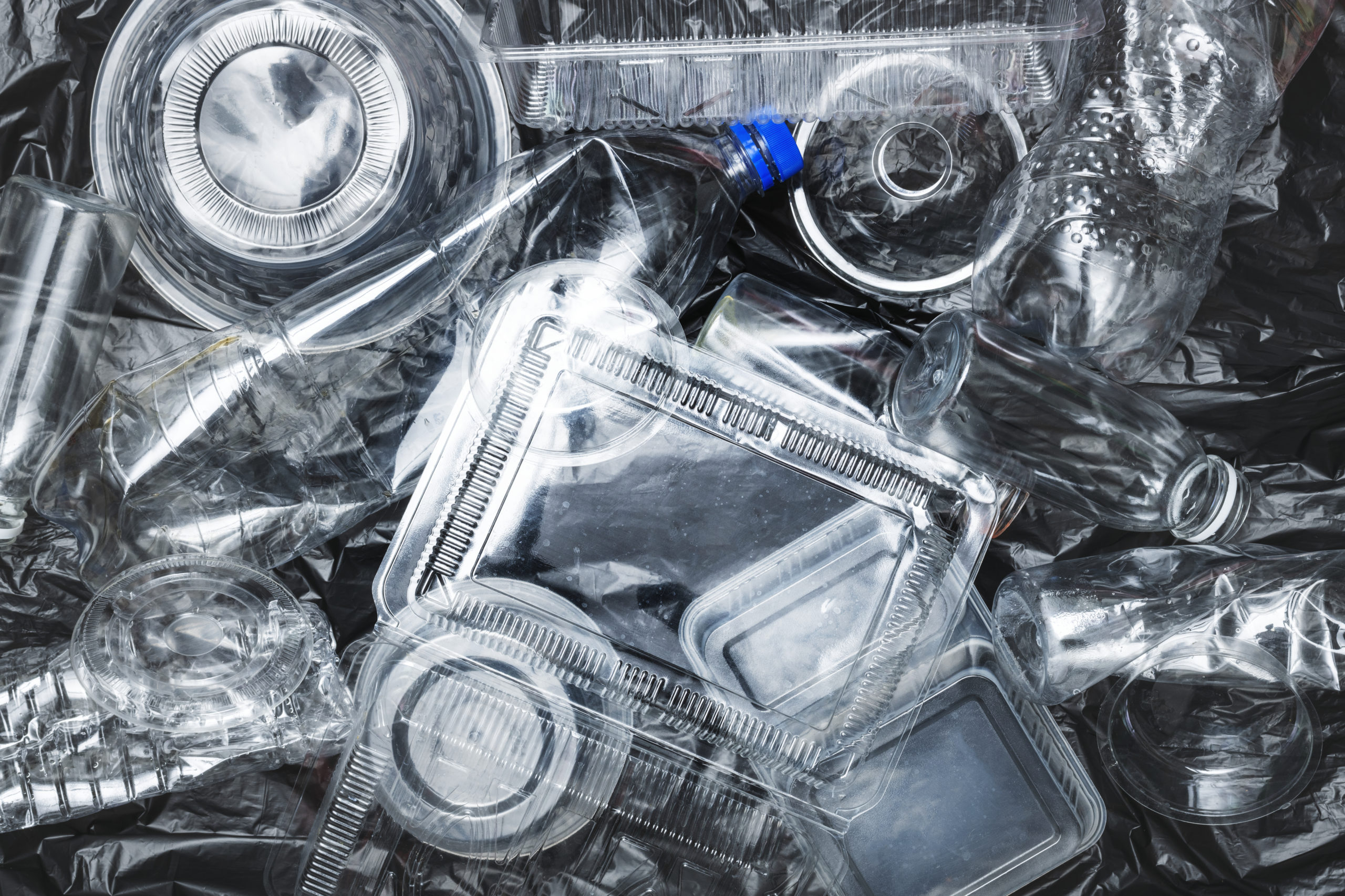“Life in plastic, it’s fantastic,” sang Aqua in their 1997 hit Barbie Girl. This phrase has taken on a dark irony in the 21st century. Plastic is everywhere: in our oceans, our food, our bloodstreams. Delegates attending the August 2025 INC-5.2 negotiations to finalise a global plastics treaty in Geneva face a visceral reminder of the cost of political inaction on their way to the Palais des Nations every morning: “The Thinker’s Burden”- artist Benjamin Von Wong’s haunting reinterpretation of Rodin’s The Thinker – depicts a figure clutching a child, seated on a suffocating Mother Earth and surrounded by a DNA helix, slowly being buried under plastic waste.
As the Global Plastics Treaty takes shape, the response to the plastics crisis still skirts around a crucial issue: plastic pollution is not just an environmental emergency, but a gendered, racialised, and deeply unequal crisis. And one that affects small island developing states the greatest considering their reliance on the ocean economy. Unless social justice is embedded in both language and implementation of the treaty, it will fall short of delivering the transformative change that is so urgently needed.
Why it matters
Plastic pollution is a global problem, but it disproportionately harms the most vulnerable groups of society: those with the least power and resources, such as women and children, Indigenous and racialised communities, informal workers and low-income communities. For instance:
• Small Island Developing States (SIDS) and coastal communities in low-income countries are among the most acutely affected by plastic pollution, particularly in marine environments. Their economies rely heavily on tourism and fisheries, both of which are threatened by plastic waste. Limited waste management infrastructure, combined with the influx of foreign plastics, shifts the environmental burden from wealthy to less affluent nations, and places disproportionate pressure on SIDS and coastal communities.
• According to UNDP, up to 20 million people around the world work in the informal waste sector- often as pickers or scavengers – without protection and rights, under often hazardous and degrading conditions. Many are women, children, older adults, and people with disabilities, forced into this work by poverty and lack of alternatives. Beyond economic hardship, they face systemic discrimination, violence, and sexual harassment.
The WEF highlights that women’s role within the plastics value chain means they suffer greater economic and health impacts than men: in Ghana, for instance, women make up 64% of waste-pickers, but only account for 12% of jobs higher up the value chain, such as waste management or manufacturing companies, where protection, social security and status are higher.
• Women and girls are more affected by plastic pollution than men: a report by GIZ highlights that due to their higher body fat percentage and thinner skin, chemicals can be more easily absorbed and accumulated, posing particular risks to hormonal health and pregnancy. Women-specific risks also include plastic exposure through menstrual health management: some sanitary pads are 90% made up of plastic.
• Indigenous communities and racialised populations frequently live near plastic-producing petrochemical facilities – known as “fenceline” communities – and suffer from pollution-related health disparities, including elevated cancer rates and respiratory diseases.
The role of frontline communities in driving change
Despite being the most impacted, there remains a need to better include these frontline communities in treaty negotiations and global decision-making spaces. More balanced representation creates a more legitimate process and ultimately a more globally owned Plastics Treaty. Including the views of SIDS and these vulnerable communities ensures that vital knowledge, practical solutions and justice-centred perspectives that are essential for crafting an effective response to the plastic crises, are reflected.
As leaders, environmental stewards, caretakers and innovators, affected communities often hold the key to sustainable solutions. SIDS often house the natural materials to invest in less harmful plastic substitutes. Informal waste workers, for example, have built complex, community-based systems of plastic collection and recycling in the absence of formal infrastructure. Indigenous peoples have safeguarded ecological knowledge that promotes sustainable, zero-waste lifeways for generations. Women in coastal communities are already leading efforts to clean shorelines, campaign against harmful products, and build circular economies through social enterprises. Globally, women make up 70-80% of consumer purchasing decisions worldwide, yielding significant influence in driving demand for sustainable products (Global Plastic Action Partnership).
To deliver a truly transformative plastics treaty, decision-makers must:
• Recognise and uphold the environmental and human rights of affected communities , including women, Indigenous peoples, informal workers, and people with disabilities, and ensuring their meaningful and sustained participation at every stage of treaty development and implementation.
• Incorporate gender-responsive and intersectional approaches into the treaty text itself, national action plans, monitoring mechanisms, and funding frameworks. That means addressing specific exposure risks faced by women, girls, and vulnerable populations and tracking impacts accordingly.
• Systematically collect disaggregated data, broken down by gender, age, race, disability, and socioeconomic status, to ensure that policies and interventions address the specific needs and vulnerabilities of affected groups.
• Ensure fair access to technology and resources, particularly to SIDS, coastal nations, and low-income countries that bear the brunt of the plastic burden while contributing little to its production.
• Invest in community-led and Indigenous-led solutions, including traditional ecological knowledge, regenerative practices, and local innovation.
A treaty for people and planet
We cannot recycle our way out of a plastics crisis rooted in structural inequality. A treaty focused only on supply chains, packaging bans, or recycling quotas will fail unless it addresses the deeper social and economic injustices that plastic pollution reinforces. There is a need to tackle issues such as production, fossil fuel subsidies, trade, market access and investment in plastic substitutes; and the critical matter of financing.
If the Global Plastics Treaty is to be truly historic, it must shift power toward those who have long borne the weight of this crisis, and who are already showing us the path forward.



